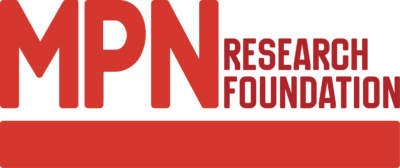High Dose Ruxolitinib and Allogeneic Stem Cell Transplantation in Myelofibrosis Patients With Splenomegaly
Study Purpose
To learn if giving ruxolitinib and busulfan before a stem cell transplant can help to reduce spleen size and help the transplant to succeed.
Recruitment Criteria
|
Accepts Healthy Volunteers
Healthy volunteers are participants who do not have a disease or condition, or related conditions or symptoms |
No |
|
Study Type
An interventional clinical study is where participants are assigned to receive one or more interventions (or no intervention) so that researchers can evaluate the effects of the interventions on biomedical or health-related outcomes. An observational clinical study is where participants identified as belonging to study groups are assessed for biomedical or health outcomes. Searching Both is inclusive of interventional and observational studies. |
Interventional |
| Eligible Ages | 18 Years - 75 Years |
| Gender | All |
Trial Details
|
Trial ID:
This trial id was obtained from ClinicalTrials.gov, a service of the U.S. National Institutes of Health, providing information on publicly and privately supported clinical studies of human participants with locations in all 50 States and in 196 countries. |
NCT06345495 |
|
Phase
Phase 1: Studies that emphasize safety and how the drug is metabolized and excreted in humans. Phase 2: Studies that gather preliminary data on effectiveness (whether the drug works in people who have a certain disease or condition) and additional safety data. Phase 3: Studies that gather more information about safety and effectiveness by studying different populations and different dosages and by using the drug in combination with other drugs. Phase 4: Studies occurring after FDA has approved a drug for marketing, efficacy, or optimal use. |
Phase 2 |
|
Lead Sponsor
The sponsor is the organization or person who oversees the clinical study and is responsible for analyzing the study data. |
M.D. Anderson Cancer Center |
|
Principal Investigator
The person who is responsible for the scientific and technical direction of the entire clinical study. |
Uday Popat, MD |
| Principal Investigator Affiliation | M.D. Anderson Cancer Center |
|
Agency Class
Category of organization(s) involved as sponsor (and collaborator) supporting the trial. |
Other, Industry |
| Overall Status | Not yet recruiting |
| Countries | United States |
|
Conditions
The disease, disorder, syndrome, illness, or injury that is being studied. |
Splenomegaly, Myelofibrosis |
| Study Website: | View Trial Website |
Contact a Trial Team
If you are interested in learning more about this trial, find the trial site nearest to your location and contact the site coordinator via email or phone. We also strongly recommend that you consult with your healthcare provider about the trials that may interest you and refer to our terms of service below.

 Translate
Translate